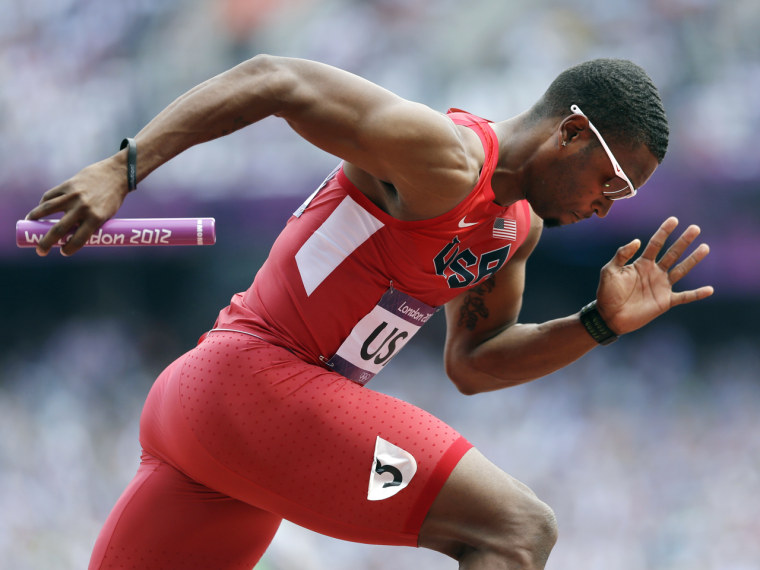He heard the break. He felt the pain. And he just wanted to lie down.
But after he broke his leg during the semifinal round of the men’s Olympic 4 x 400 meter relay on Thursday, sprinter Manteo Mitchell kept on running, even though, he said, “It felt like somebody literally just snapped my leg in half.”
“It’s impressive both because he’s dealing with pain as well as not having all of his parts in an optimal situation,” says Dr. Balu Natarajan, a sports medicine specialist in Chicago.
He attributes Mitchell’s feat to a combination of the highly trained athlete’s fight-or-flight response to pain and the fact that the bone he broke in his lower left leg, the fibula, absorbs less shock and does less work than the other leg bones.
“Part of it was that the fibula contributes less to weight bearing as opposed to the femur and tibia and part of it is that in that high-energy situation, he has enough adrenaline and endorphins kicking throughout his body that he’s feeling a lot less pain at that moment,” said Natarajan, who also serves on the medical team of the Chicago Marathon.
Had the 25-year-old Mitchell broken his femur or tibia, it would have been nearly impossible for him to finish the race, he said. If a leg bone had to break, he was in a sense lucky it was the fibula.
“If it’s a short enough distance and a high level enough athlete, even with a broken fibula, someone can finish the race,” Natarajan said.
In a statement released through USA Track & Field, Mitchell said the roar of the crowd was so loud that nobody heard his “little war cry,” and he said he didn’t want to let his teammates down. Mitchell finished his heat in 46.1 seconds, only 1.5 seconds longer than the runner of the next leg; the U.S. qualified for the finals and finished in the fastest time ever run in the first round of the relay at the Olympics. On Friday, the U.S. team went on to win a silver medal, thanks in part to Mitchell's sacrifice.
In a high-stakes event like the Olympics after years of training, athletes sometimes will stop at nothing, experts say.
“There’s so much that’s tied into the psyche during a race like this, it really can override a lot of things we would feel outside of such a high energy situation,” Natarajan said. “If the same thing happened on training run and no one was around, he would very likely have stopped.”
“Anybody who has trained for a particular event for four years, really they have one goal, and between that and the tremendous conditioning and excellent biomechanics, it’s really the perfect confluence of factors that might allow someone to overcome a break like this,” he said.
Mitchell said he had slipped on the stairs a few days earlier, but had it checked out, felt fine and didn't think much of it. Mitchell’s strong finish in the race was a clear example of a top athlete’s ability to put mind over matter, says Frank Smoll, a professor of sport psychology at the University of Washington.
“It’s a very good illustration of how highly motivated they are and their willingness to pursue and persist and play through pain, so that the importance of what they’re doing really outweighs the potential negative consequences, in this case, physical harm,” he said.
“They’re highly dedicated athletes, they’re courageous, and they’re willing to, at their own self-sacrifice, give it their all,” Smoll said.
The training Olympic athletes receive in "attention control," the ability to block out distractions like pain, helps them succeed, Smoll said, adding: “It’s not just the physical ability that makes the elite athletes but the mental preparation is what makes them excel.”
The U.S. men's 4 x 400 relay team won a silver medal on Friday; Mitchell, who has been fitted with a boot and crutches, will receive a medal with the rest of the team.
Related:
